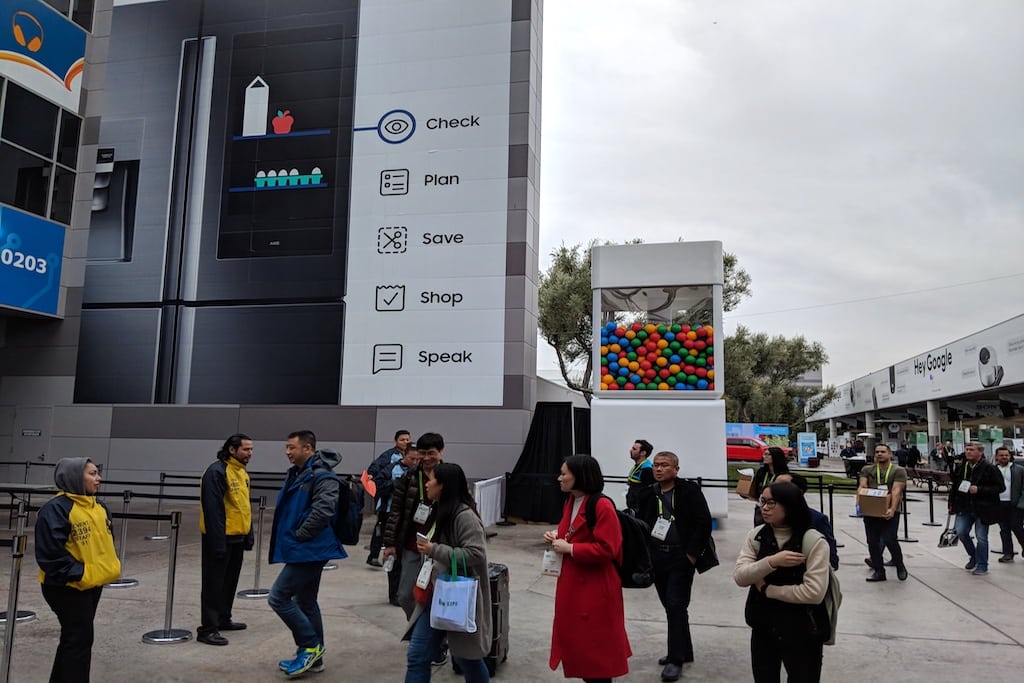Skift Take
Technology companies are embedding smart speakers into all kinds of household devices, ranging from toothbrushes to refrigerators. A strong use case for hospitality, however, has yet to emerge.
Smart speakers powered by artificial intelligence could be reaching the apex of their hype cycle.
Vendors displayed dozens of them at CES 2018 in Las Vegas last week, with many embedded into household devices instead of standing alone as a consumer product.
In the hospitality space, smart speaker adoption has been limited. Wynn Las Vegas, for instance, added an Amazon Echo unit to each hotel room in early 2017, while chains like Best Western and Marriott have also installed units in a small number of hotels.
There are still many issues, however, that hinder the proliferation of smart speakers in a hospitality environment.
Foremost is ensuring the privacy of guests. There have already been scandals based on errors causing smart speakers to constantly listen in to the conversations around them, and problems like these give hoteliers pause.
Josh Weiss, vice president of brand and guest technology at Hilton Hotels and Resorts, told Skift that while his team is constantly experimenting with voice controlled devices, the company as a whole is more focused on using the Hilton Honors app as a digital tool instead of voice control.
He likened the security concerns with smart speakers to installing a webcam for meetings in hotel guest rooms. Even if the camera is off, or physically covered, a guest will still feel like their being monitored with the device in the room.
Marriott, on the other hand, plans to make a wider push using smart speakers and voice control technology.
The fragmented nature of hotel ownership, branding, and franchising is another obstacle. Hotel owners simply may not be willing to make the investment for 200 or 500 Amazon Echo devices with no clear path towards monetization, even if their brand is touting the devices.
The process of installing devices, as well, is different for every hotel; older hotels may not have the information infrastructure to handle the devices, while new-build properties do but may prioritize other aspects of the guest experience.
Even if a hotel brand claims to have installed these devices in dozens of hotels, it’s hard to see a path forward toward widespread adoption without a clear case for return on investment, particularly when hotels can use that money toward renovations and other product improvements.
The Connected Future
There’s also the reality that consumer devices like Google Home and Amazon Echo don’t interface with back-of-the-house hotel systems.
Sensors can tell a hotel whether a room is occupied, for instance, and lower the temperature to save on energy costs. Soon guests will be able to establish a profile including their preferred room temperature and what time they’d like to wake up in the morning, which will be reflected automatically in their room. Automation has the capability to become a powerful tool for hoteliers in the future.
Hotel technology startups, however, are working on hardware that bridges the divide between guest-facing tools and behind-the-scenes technology.
“Hotels are hard,” said Michael Cohen, head of business development for Angie Hospitality, because the kinds of devices that are ending up in homes don’t really meet the needs of hoteliers.
The guest room device from Angie Hospitality, which is being deployed in hotels in the U.S., provides guests with a private, secure Wi-Fi connection along with voice control capabilities for their room and searches powered by artificial intelligence. The system can also provide voice-over-internet-protocol phone connections, essentially replacing the traditional phone in a guest room.
On the hotel end, the device can connect into hotel back-end systems governing energy management, revenue management, and housekeeping. Hoteliers will have visibility into guest preferences and be able to better tailor the hotel experience to guests based on data.
The vision is to allow hotels to create a customized experience for guests, perhaps suggesting a hotel’s restaurant instead of nearby local options or providing customized content for conference attendees.
But given the scale of the global hospitality industry, it seems like the voice controlled future is still in its nascent stages.
Have a confidential tip for Skift? Get in touch
Tags: CES, hospitality
Photo credit: A Google Now and smart refrigerator adveritsement outside CES 2018 in Las Vegas. Skift
